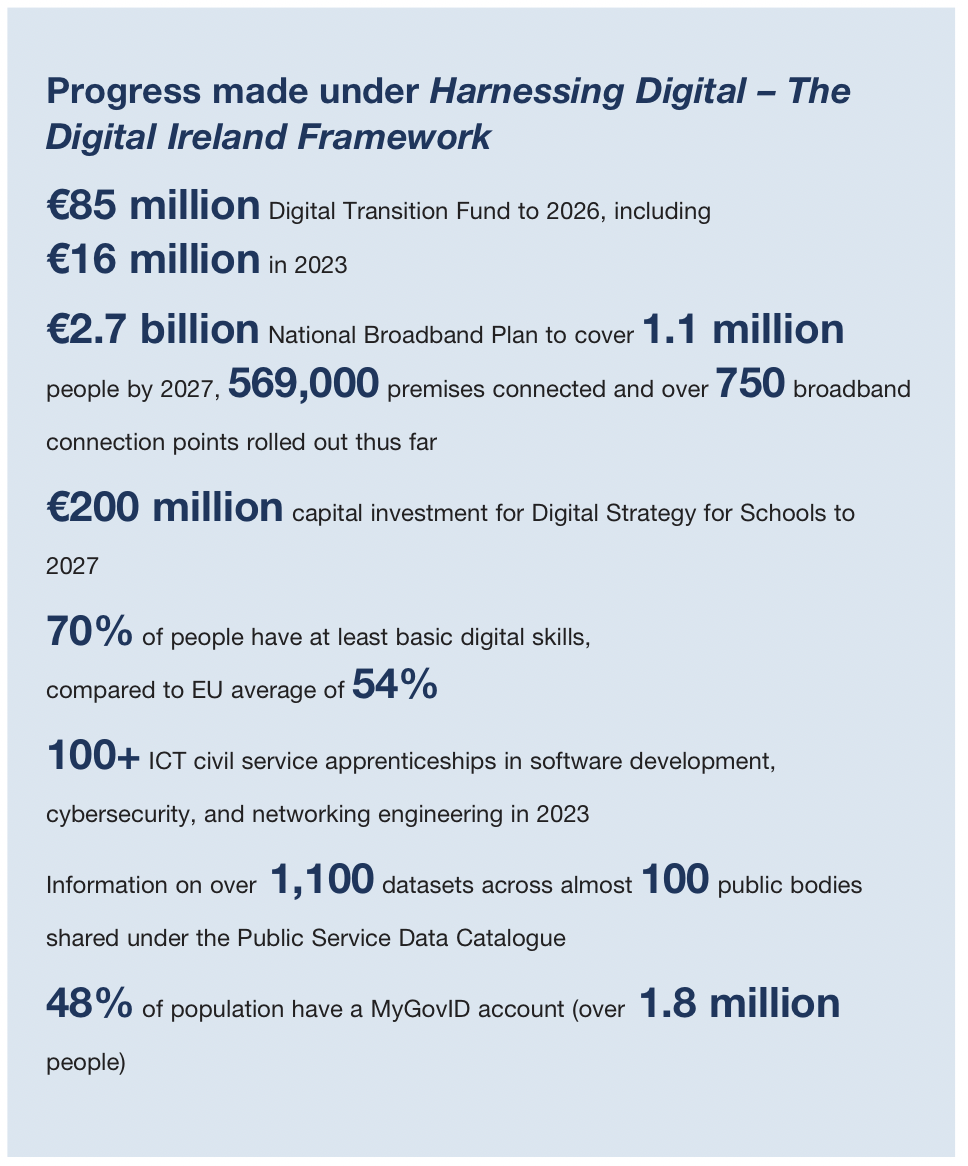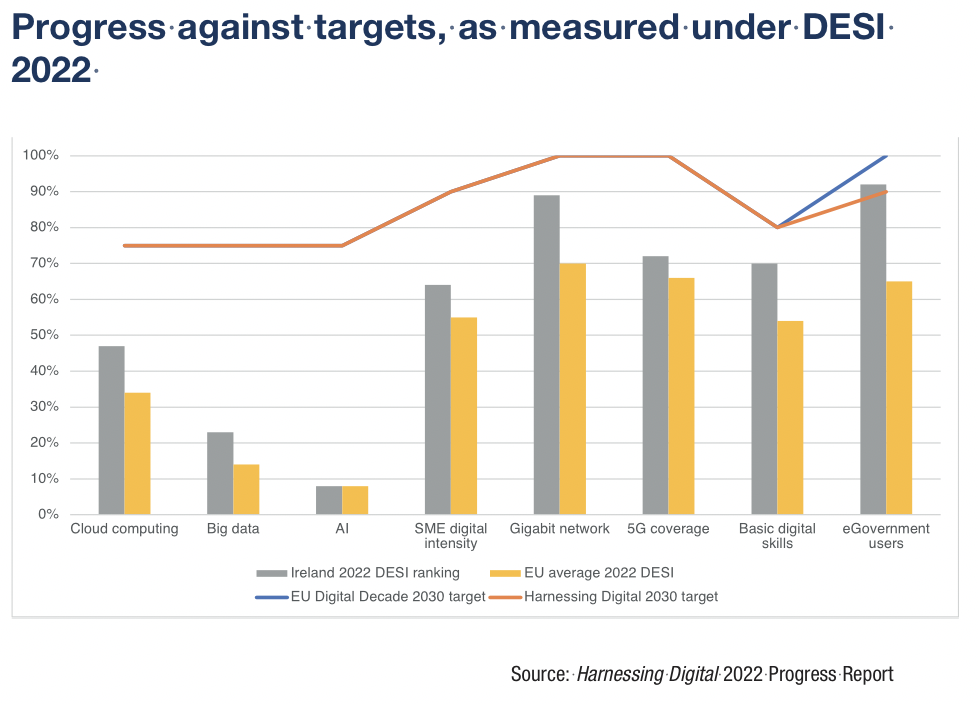Progress made on Harnessing Digital dimensions

Amidst progress being made “across all” dimensions of the national digital strategy, Harnessing Digital, Ireland retained fifth place in the EU’s 2022 Digital Economy and Society Index (DESI) while pressing forward with initiative such as the €85 million Digital Transition Fund, a government progress report states.
The Government published its progress report in December 2022, stating that Harnessing Digital “re-enforces our commitment to a modern, cohesive, well-resourced network of regulators to effectively oversee and enforce digital regulations”. Noting the State’s retention of fifth spot in the 2022 DESI rankings, the Government states that this is “increasingly important given the significant challenges, and economic headwinds currently facing businesses and households, including the technology sector”.
Mentioned among the “significant progress” made under the strategy are the establishment of a new Enterprise Digital Advisory Forum with representatives from domestic and multinational business, along with the €85 million Digital Transition Fund, available to 2026 and designed to “support companies at all stages of their journey”, which involves a digital training scheme for SMEs.
Also cited as progress is the Government’s revised statement on the role of data centres, published in July 2022, in which the Government pledged not to ban the development of new data centres, but instead proposed tighter regulations in an effort to “align the twin transitions, which are both digital and green”. Ireland’s first ever AI Ambassador, Patricia Scanlon, was also appointed to the role in May 2022, to lead “a national conversation on the role of AI in our lives, and Ireland’s commitment to an ethical approach”.
In terms of strategies and frameworks, progress has been made across various attempts to digitalise the state by 2030 since the inauguration of the Harnessing Digital strategy in February 2022. The Digital Strategy for Schools and the Adult Literacy for Life Strategy are both currently progressing, while a new Digital Connectivity Strategy sets out the State’s ambition for connectivity to 2030 and the enablers for the achievement of such targets. The strategy follows four principles: encouraging commercial investment in energy efficient solutions, network integrity and security, and supporting the modernisation of networks and the transition to gigabit and 5G; ensuring the regulatory framework encourages investment in emerging technologies; intervening where the market fails to deliver; and promoting the adoption of digital technologies through pilot initiatives and research programmes.
Connecting Government 2030 continues to be implemented, with new eGov measures such as key life events for MyGovID profiles being developed, as well as the National Cyber Security Strategy 2019-2024, a mid-term review of which was opened for consultation in December 2022 and closed in February 2023. Work to strengthen the National Cyber Security Centre is “ongoing”. Also ongoing is the development of the Digital Healthcare Framework 2023-2027, which will “consider how best to develop a roadmap for electronic health record systems”.
From a legislative perspective, the Government has named the new media commission, Coimisiún na Meán, as Ireland’s digital services coordinator, a requirement under the European Digital Services Act and “work is ongoing to giver operational and legislative effect to that decision”. Coimisiún na Meán came into being in March 2023 as part of amendments made to the Broadcasting Act 2009 by the Online Safety and Media Regulation Act 2022. The Government also agreed to appoint two new commissioners to support the needs of the Data Protection Commission (DPC) in July 2022, although no appointments have been made as yet and are not expected until current commissioner Helen Dixon’s role comes to an end at the end of 2023. The DPC budget has also been increased to €26.2 million for 2023, allowing the further expansion of the organisation beyond the 200 staff it currently employs.







